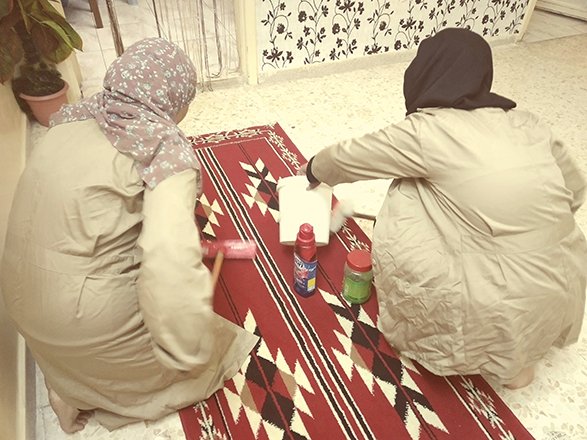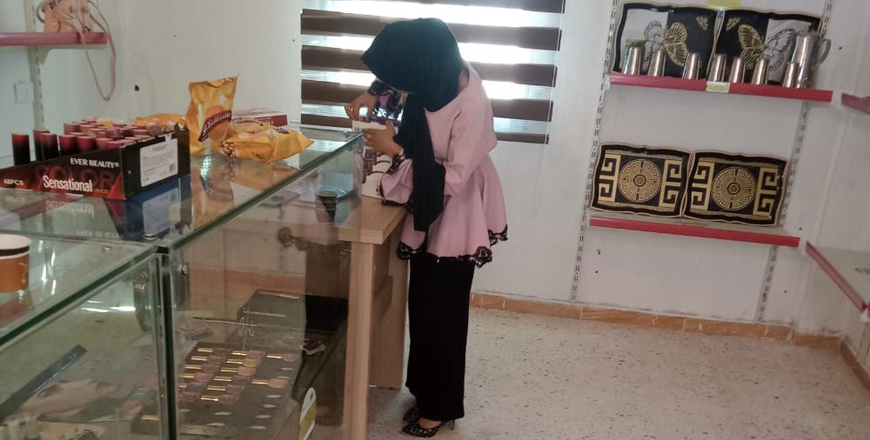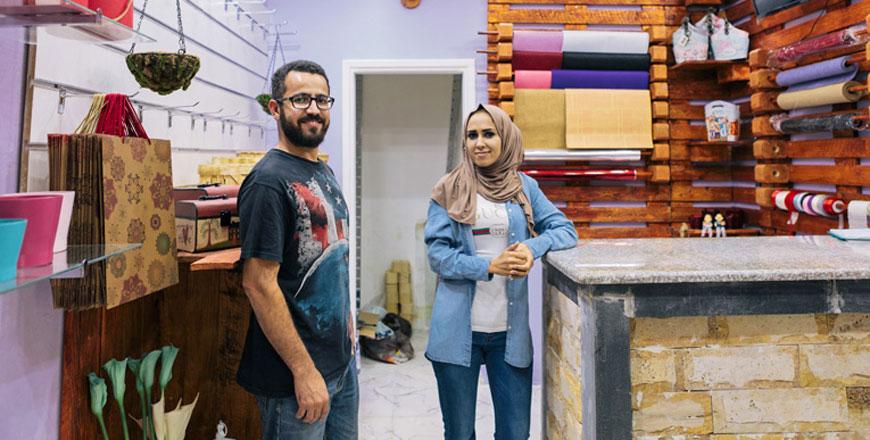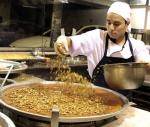You are here
Madad project helps Jordanian, refugee women overcome ‘culture of shame’
By Maram Kayed - Oct 10,2020 - Last updated at Oct 15,2020

Ghadeer and Asmaa, two women whose friendship turned into a business partnership, opened a home dry clean business after being financed by the European Union Regional Trust Fund for Responding to the Syrian Crisis (Madad Fund) and the Euro-Mediterranean Feminist Initiative. (Photo Courtesy of BDC)
AMMAN — When two women residing in a northern village decided to open a home dry clean project, they contributed in enhancing the lives of those around them and inspiring other women.
Ghadeer and Asmaa, two women whose friendship turned into a business partnership, opened a home dry clean business after being financed by the European Union Regional Trust Fund for Responding to the Syrian Crisis (Madad Fund) and the EuroMed Feminist Initiative.
Asmaa and Ghadeer’s friendship started in school when Asmaa immigrated from Syria due to the war.
“We became close friends at school and we have not separated since,” said Ghadeer.
As a homemaker, Ghadeer used to wash the carpet in her house and then spread it out on the balcony, which bothered her neighbours as the cleaning water would soak their garden.
“I used to tell my friend Asmaa about it because I wish I had a machine that cleans and dries the carpet in the same place. On a different note, one day, Asmaa told me that there is a project called Madad managed by the Business Development Centre, which trains women for the labour market or to start their own projects,” added Ghadeer.
After registering in a class called Life Skills, Ghadeer said that the idea of starting a business sparked after she and Asmaa saw their female colleagues start their own small projects.
“This encouraged us to think about a special project that brings us together. During a field training trip on home maintenance, the idea of a home dry clean flashed in my head when I remembered the carpet,” added Ghadeer.
When the two women presented the idea in their class, they received encouragement from both their colleagues and trainers.
“This was an idea that was new in Ajloun as a whole, not just in the village of Kufranjeh,” noted Ghadeer, who said that she “did not expect to be a partner in a successful project so quickly and at a young age.”
“I have become more confident in myself and in my ability to achieve my ambition. I have increased my courage to take on more responsibility at work and have learned the basics of home maintenance, which has helped us learn to use machines and equipment,” she added.
After having learned e-marketing, the two friends began to rely on WhatsApp with advertising.
At the beginning, Asmaa and Ghadeer rented a cleaning machine that cost them JD150 a month, which made them think about buying a machine of their own to save the rent value.
“This was not the only difficulty we faced, as we had many hurdles in our way, such as transportation, which was difficult until my husband was convinced that the project had begun to find success and agreed to help us in the delivery,” said Ghadeer.
She added: “We have overcome the culture of shame in the community by leaving our homes and going to houses that we clean with the consent of our husbands and families which was granted after they saw that the BDC, a certified centre, was behind us.”
Giving thanks to the Madad project, Ghadeer, who speaks for herself and her business partner and lifelong friend Asmaa, said that they are optimistic about the future.
“After we got the support to advance our project, our profit has started increasing, which has made us aspire to employ other women from the local community and expand our services to the northern governorates, neighbouring villages and less fortunate communities,” Ghadeer concluded.
Related Articles
AMMAN — The lack of shops in Al Qatrana town, in Karak Governorate, and its residents’ frequent commuting for shopping prompted a young Jord
AMMAN — Eager to start their own local business in spite of their disability — both friends are deaf — Jordanian Asmaa and Hussam last year
AMMAN — Shadia Shatti's, 22, from the Jordan Valley’s Deir Alla region, dream to complete her university education and to continue her child















